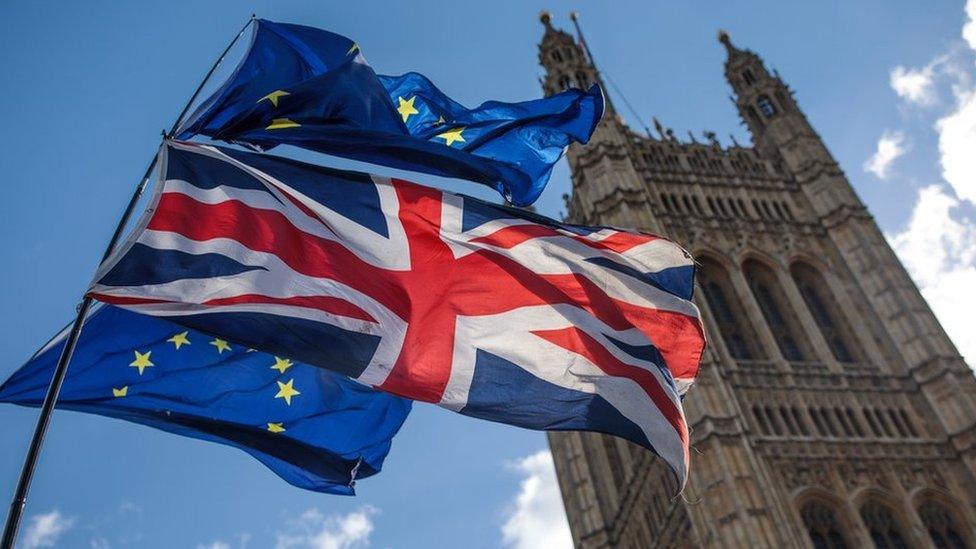Brexit: What will politicians be doing while Parliament is suspended?
- Published
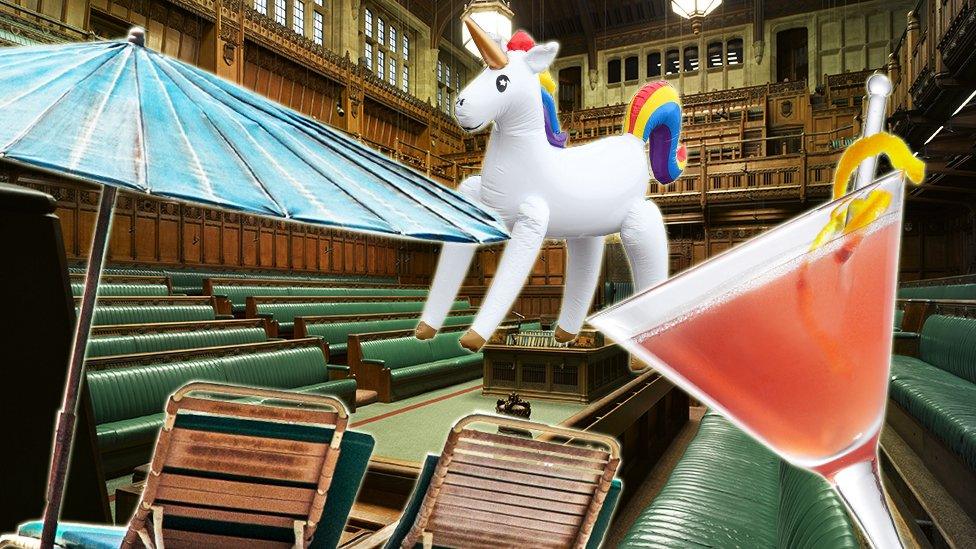
So, Parliament has been shut down for five weeks.
You might think it's the perfect opportunity for MPs to take a breather from Brexit and visit the sunnier shores of Europe.
But the prorogation of Parliament - that's the official term - doesn't actually mean that politicians will be going on holiday.
They'll still be thinking about Europe - but mainly in terms of Brexit - along with a whole host of other issues.
So here's a breakdown of what MPs might be getting up to.
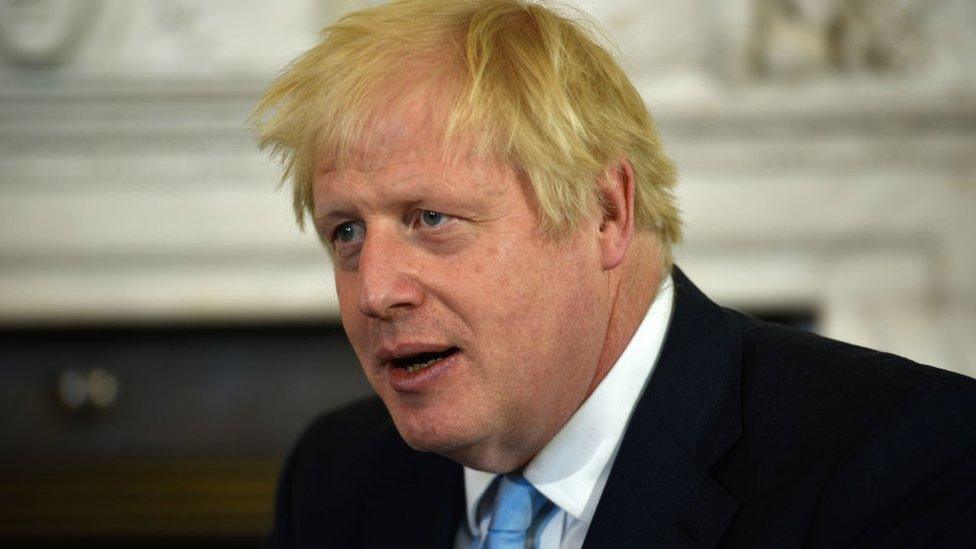
Boris Johnson has suffered his sixth consecutive parliamentary defeat
Election planning
Parliament has voted against having an election, not once but twice - so you might be wondering why they will be preparing for an election.
Well, the Prime Minister Boris Johnson wants one to restore the Conservative Party's majority in Parliament - to make it easier for him to deliver Brexit.
He lost his majority last week, and after the expulsion of 21 of his own MPs, they only have 288 MPs left in the party - that's 38 MPs below a majority.
Opposition parties including the Labour Party may have voted against an election - but they say they still want one once it's clear we are not heading for a no-deal Brexit.
So expect the election planning machines of every party to be cranking into gear.
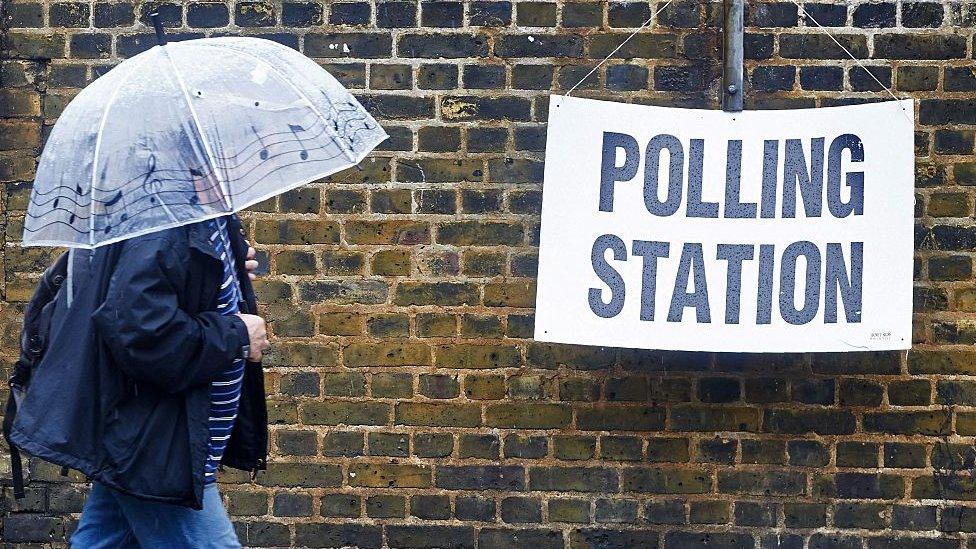
The next election is expected before the end of the year
Brexit
If you think a Parliament shutdown means an end to Brexit talk - you'd be wrong.
Mr Johnson has said the government would use the time to carry on negotiating a deal with the EU, while still "preparing to leave without one".
Meanwhile opposition parties will be trying to prevent a no-deal from happening - a law aiming to stop a no-deal Brexit on 31 October has been passed in Parliament.
This means that if a deal is not agreed between the UK and EU by 19 October, and MPs don't vote in favour of leaving with no deal, then the prime minister will be legally obliged to ask the EU for a Brexit delay.
But the PM has said his "government will not delay Brexit any further"...
Lawyers, lawyers and more lawyers
So this means there's a big chance you'll be seeing lots of legal battles taking place about - you've guessed it - Brexit.
There have been suggestions that the government could ignore the anti no-deal law that was passed - some ministers have called it "lousy" and said they would "test to the limit" what it required of them.
But the PM has been warned this could cause a legal challenge.
Some MPs voiced their objection to the suspension in the Commons
And MPs have also voted for the government to release details of its no-deal plans and the conversations its had about the suspension of parliament.
But the Attorney General Geoffrey Cox - the government's top legal adviser - has questioned the legal right of releasing communications.
And if that wasn't enough - there's also a legal challenge to the original decision to suspend parliament.
Former Conservative PM, Sir John Major, and anti-Brexit campaigner and businesswoman, Gina Miller, had their challenge rejected by the High Court - but an appeal is expected to be heard at the Supreme Court on 17 September.
Conference season
Party conferences are a bit like the Glastonbury of the political calendar.
Usually they're about the key issues - with speeches by big political players and plenty of panels, debates and drinks receptions to attend. There's even the odd karaoke session.
But this year - it'll be about elections.
Speeches and promises by the key leaders will be about pitching their big ideas and making their parties look electable to the public.
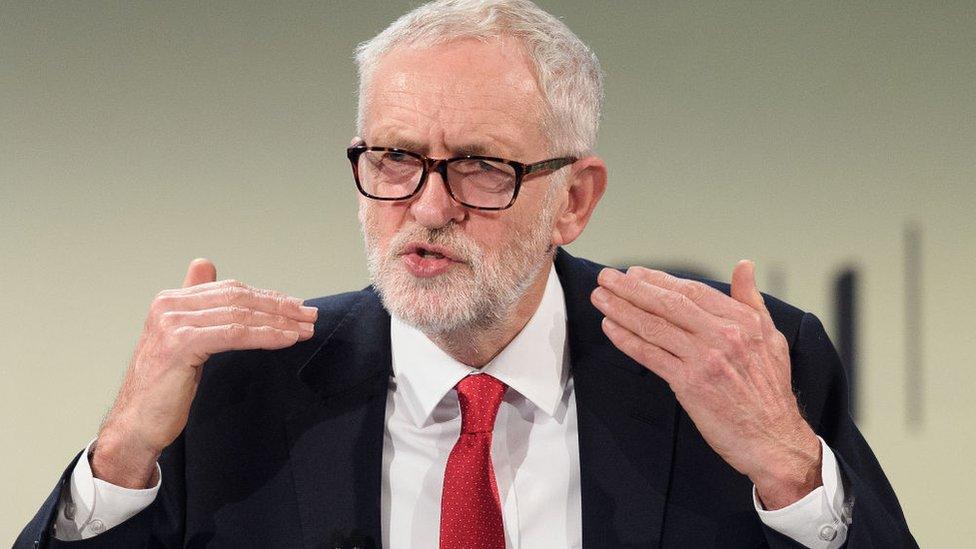
Jeremy Corbyn says he's "eager" for an election but wants to stop no-deal
Serving their constituencies
And of course, during this time, MPs will also be heading back to their constituencies - the areas they represent.
Normally, they would be listening to residents speak about the local issues which impact them.
But this time - like with most things - they'll probably be faced with questions about Brexit and how that's going to turn out.
John Bercow: "This is not a normal prorogation"
Is a break at this time normal?
Parliament is normally prorogued once a year for a short period - usually in April or May.
It's different to a recess - a break in the Parliamentary session - which was due to happen this year from roughly 13 September to 8 October.
It's normal for new governments to shut down parliament - it lets them hold a Queen's speech - setting out its plans for the future.
But the length of time varies - in 2016 Parliament was closed for four working days, while in 2014 it was closed for 13 days.
And this year, Parliament will be suspended for 24 working days.
But because of Brexit and the choppy political waters - the timing of this suspension has been controversial.
And it also means that as much as they might feel ready to, MPs won't be able to kick back and relax on their sun loungers.


Follow Newsbeat on Instagram, external, Facebook, external, Twitter, external and YouTube, external.
Listen to Newsbeat live at 12:45 and 17:45 weekdays - or listen back here.
- Published10 September 2019
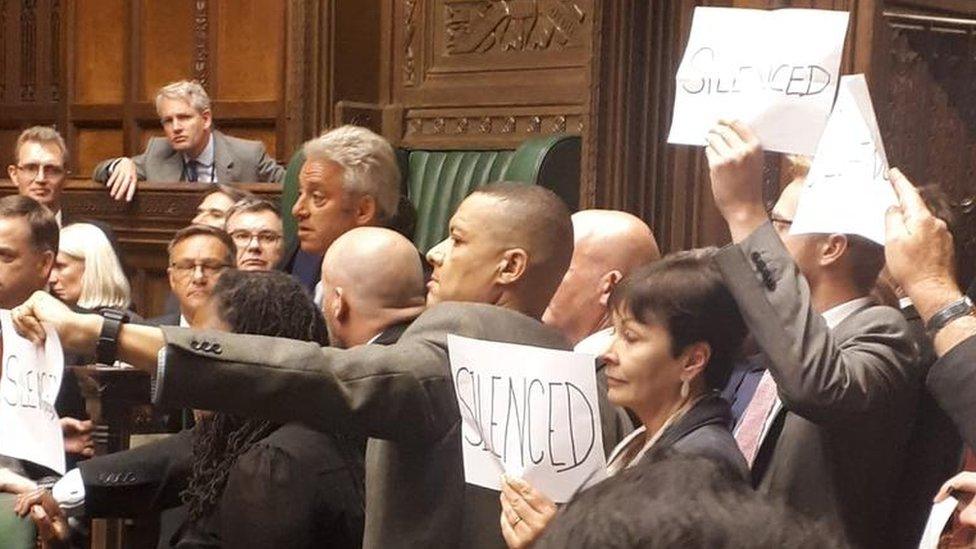
- Published13 July 2020
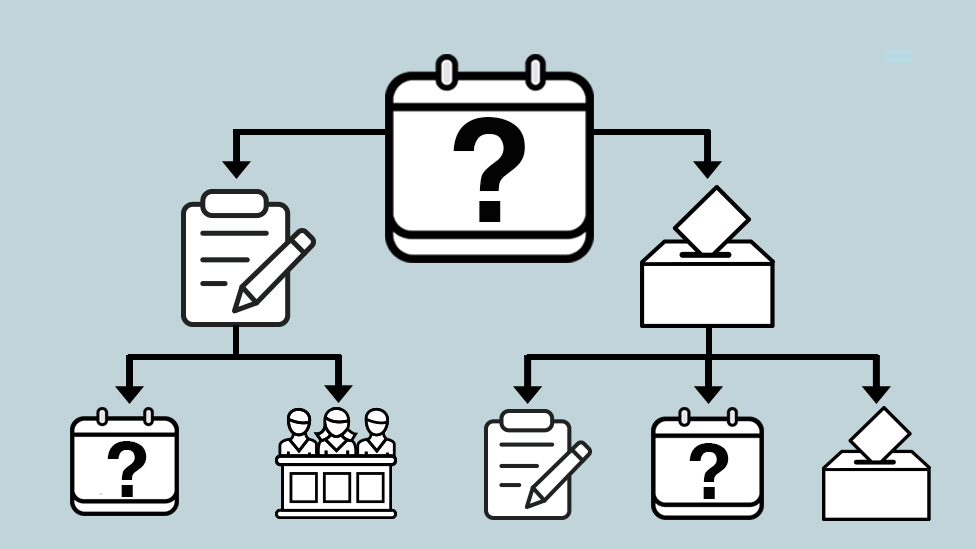
- Published8 October 2019
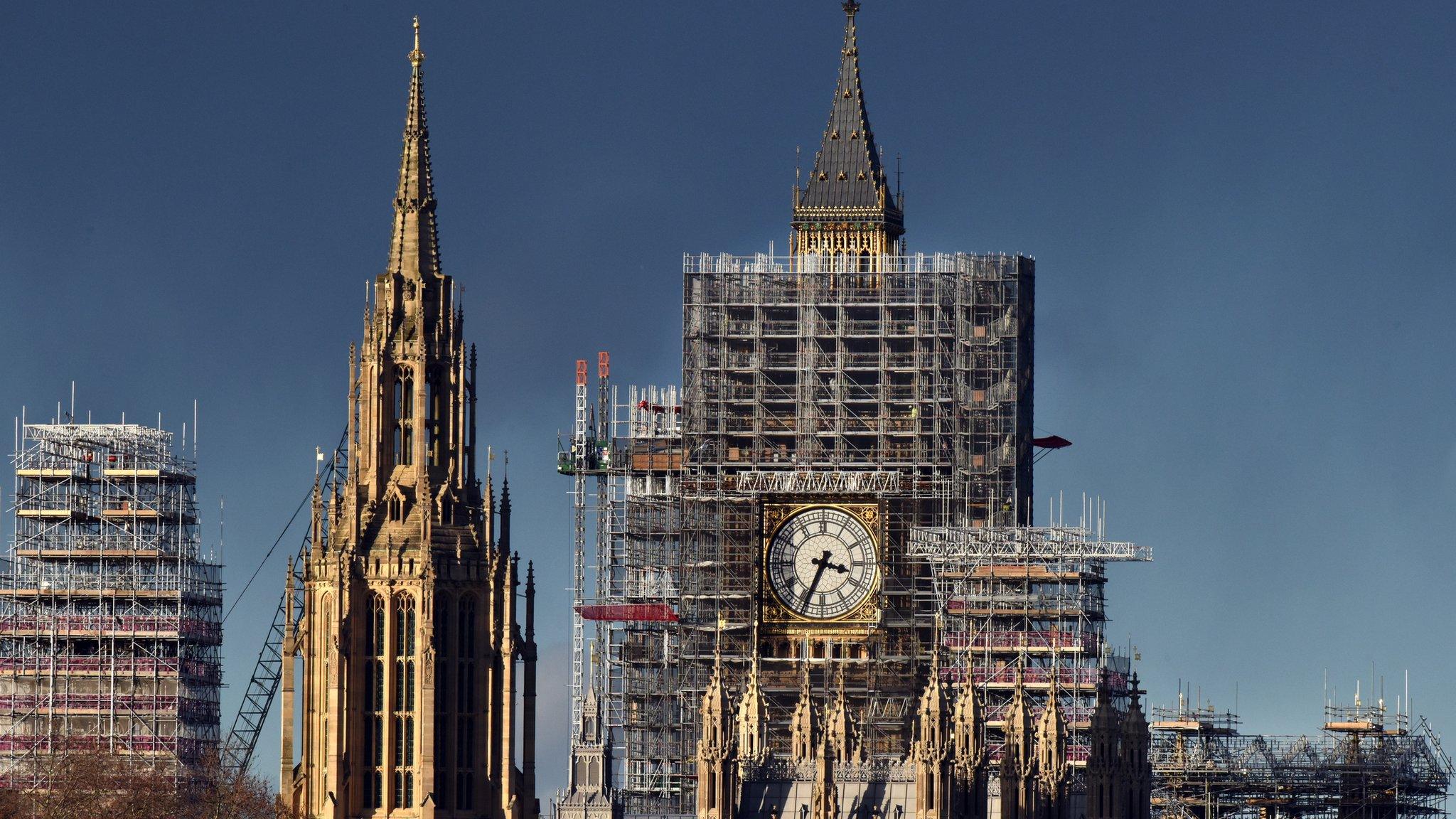
- Published28 October 2019
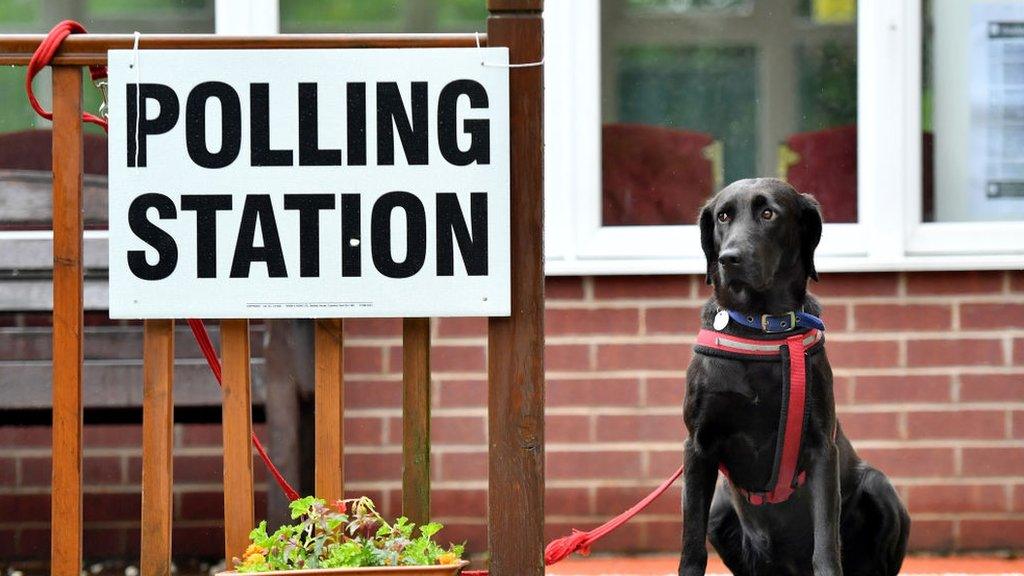
- Published25 October 2019
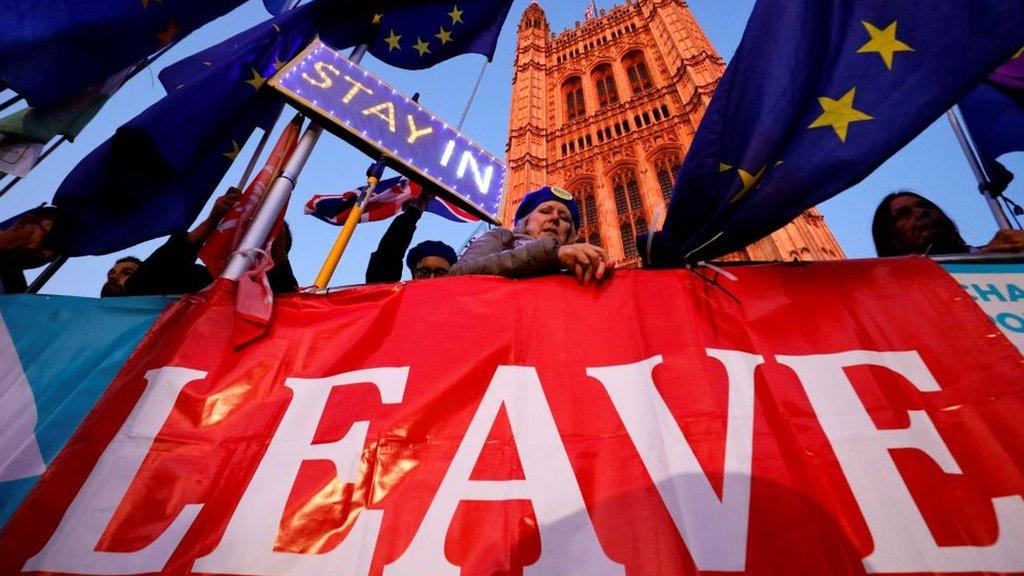
- Published8 September 2019
